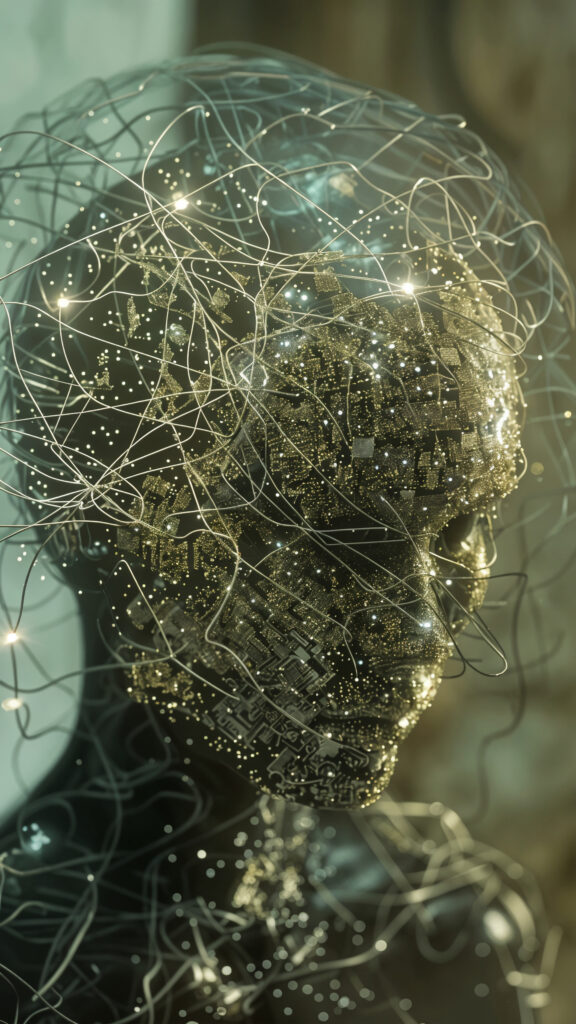Navigating the Digital Mind: AI, Mental Health, and Finding Your Way

In an increasingly digitized world, artificial intelligence (AI) is rapidly transforming countless aspects of our lives, and mental health is no new exception. From therapy chatbots to predictive analytics, AI offers both exciting possibilities and potential pitfalls for how we understand, manage, and improve our psychological well-being. But what does this mean for you, and how can you navigate this evolving landscape?
The Promise of AI in Mental Health: The “Pros”
Let’s start with the exciting upsides. AI holds significant promise in expanding access to mental health support and enhancing existing care:
- Increased Accessibility and Affordability: For many, traditional therapy can be cost-prohibitive or geographically out of reach. AI-powered tools, like chatbots and apps, can provide instant, 24/7 support, often at a lower cost or even free. This can be a game-changer for individuals in remote areas or those facing financial constraints.
- Early Detection and Intervention: AI algorithms can analyze vast amounts of data—from social media patterns to sleep trackers—to identify potential mental health issues early on. This proactive approach could lead to timely interventions, possibly preventing conditions from escalating.
- Personalized Support: AI can tailor interventions to individual needs and preferences. A therapy app might adapt its approach based on your specific responses, offering more personalized coping strategies or mindfulness exercises.
- Reduced Stigma: Engaging with an AI tool can feel less intimidating than seeking in-person therapy, potentially lowering the barrier for individuals hesitant to acknowledge their struggles due to stigma.
- Data-Driven Insights for Clinicians: AI can assist mental health professionals by sifting through patient data, identifying trends, and even suggesting evidence-based interventions, freeing up clinicians to focus more on direct patient care.
The Perils of AI in Mental Health: The “Cons”
While the potential is vast, it’s crucial to acknowledge the limitations and risks associated with AI in mental health:
- Lack of Empathy and Human Connection: Mental health is deeply personal, and genuine human connection, empathy, and nuanced understanding are often critical for effective therapy. AI, no matter how sophisticated, cannot fully replicate the human element of compassion and intuition.
- Data Privacy and Security Concerns: The use of AI in mental health involves collecting highly sensitive personal data. Ensuring robust data privacy and security measures is paramount to prevent misuse or breaches.
- Algorithmic Bias: If the data used to train AI models is biased (e.g., predominantly reflecting certain demographics), the AI’s recommendations or assessments could perpetuate or even amplify existing health disparities.
- Misdiagnosis and Inaccurate Information: AI tools are only as good as the data they’re fed. Flawed algorithms or incomplete information could lead to misdiagnosis or provide inappropriate advice, potentially causing harm.
- Over-reliance and Deskilling: There’s a risk that individuals might over-rely on AI tools, neglecting the importance of professional human intervention when necessary. For clinicians, an over-reliance on AI could potentially deskill certain aspects of their practice.
- Crisis Management Limitations: AI is not equipped to handle acute mental health crises. In situations requiring immediate intervention or complex emotional support, human professionals are indispensable.
Finding Your Balance
So, what does this mean for you as you navigate your mental well-being journey in Sioux Falls?
AI can be a valuable tool in your mental health toolkit, offering convenient access to resources, self-help exercises, and early detection. However, it’s crucial to remember that AI should not replace the invaluable role of qualified human mental health professionals.
If you’re seeking comprehensive, compassionate, and personalized mental health support, especially as you explore the complexities of your inner world, coming to Judith Kasznica at K Counseling Services in Sioux Falls can be an excellent step.
Judith brings the human touch that AI simply cannot replicate. She offers a safe, confidential, and empathetic space where you can explore your thoughts, feelings, and experiences with a trained professional who understands the nuances of human emotion and behavior. While AI might offer generalized coping strategies, Judith can provide tailored guidance, deep listening, and a genuine connection that fosters true healing and growth.
Think of AI as a helpful adjunct, but not the entirety of your mental health care. Utilize the beneficial aspects of AI for self-management and readily available resources, but for profound, lasting change and support through life’s challenges, a human professional can offer the depth and understanding you truly need.
In Sioux Falls, you have access to both cutting-edge technology and compassionate human care. By understanding the pros and cons of AI in mental health, you can make informed decisions that prioritize your well-being and leverage the best of both worlds.





